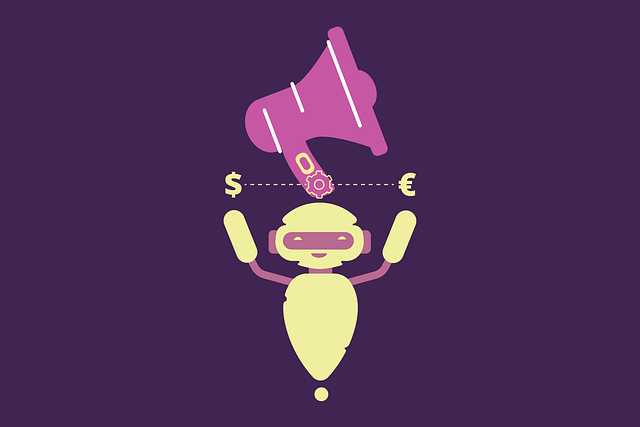AI-driven predictive maintenance is transforming restaurant operations by leveraging machine learning and data analytics to anticipate equipment failures before they occur. Smart sensors integrated into appliances collect real-time data, which AI models analyze to identify anomalies and predict potential issues. This proactive approach minimizes costly downtime, enhances operational efficiency, and extends the lifespan of critical kitchen assets like fridges, ovens, and dishwashers. Strategic AI consulting helps food service businesses implement this technology, resulting in significant improvements in operational efficiency, cost savings, and enhanced customer satisfaction.
In today’s digital era, businesses are increasingly turning to Artificial Intelligence (AI) to drive efficiency and reduce costs. Among various applications, AI predictive maintenance for kitchen equipment is transforming food service operations by forecasting equipment failures before they occur. This article explores the benefits and applications of AI in predictive maintenance, highlighting the crucial role of strategic AI consulting in successful implementation. We present compelling case studies showcasing the tangible results of AI-driven kitchen equipment maintenance programs.
- Understanding AI Predictive Maintenance for Kitchen Equipment: Benefits and Applications
- The Role of Strategic AI Consulting in Implementing Predictive Maintenance Solutions
- Case Studies: Success Stories of AI-Driven Kitchen Equipment Maintenance Programs
Understanding AI Predictive Maintenance for Kitchen Equipment: Benefits and Applications

AI-driven predictive maintenance is transforming the way kitchen equipment is managed, offering significant benefits to restaurants and catering businesses. By leveraging machine learning algorithms and data analytics, AI systems can anticipate equipment failures before they occur, minimizing costly downtime and maximizing operational efficiency. This proactive approach allows for scheduled maintenance, ensuring that fridges, ovens, dishwashers, and other critical appliances remain in optimal condition.
The applications of AI predictive maintenance in kitchens are diverse. For instance, smart sensors integrated into kitchen equipment can collect real-time data on temperature, motor performance, and usage patterns. This data is then analyzed by AI models to identify anomalies and predict potential issues. Early detection of wear and tear enables prompt replacement parts or adjustments, preventing catastrophic failures during peak service times. Additionally, predictive maintenance reduces the need for reactive, emergency repairs, which can be expensive and disrupt business flows.
The Role of Strategic AI Consulting in Implementing Predictive Maintenance Solutions

Strategic AI consulting plays a pivotal role in implementing effective predictive maintenance solutions for kitchen equipment, leveraging the power of artificial intelligence to optimize operations within food service establishments. By integrating machine learning algorithms with real-time data from sensors embedded in cooking appliances and other machinery, consultants can identify patterns indicative of potential failures before they occur. This proactive approach to maintenance not only reduces costly downtime but also extends the lifespan of critical kitchen assets.
Consultants specializing in AI predictive maintenance for kitchen equipment work closely with clients to assess their unique needs, map out data collection processes, and design tailored AI models. They employ advanced techniques such as anomaly detection, prescriptive analytics, and real-time monitoring to predict equipment failures, recommend preventive actions, and schedule maintenance activities efficiently. This strategic guidance ensures that food service businesses can maintain peak performance, enhance food quality, and maximize operational resilience in their kitchens.
Case Studies: Success Stories of AI-Driven Kitchen Equipment Maintenance Programs

In today’s digital era, businesses are increasingly turning to AI predictive maintenance for kitchen equipment as a strategic edge. This innovative approach leverages machine learning algorithms to analyze vast amounts of data from sensors embedded in kitchen appliances, predicting failures before they occur. Case studies have shown remarkable success stories, such as a leading restaurant chain that reduced equipment downtime by 30% and lowered maintenance costs by 25%. By implementing AI-driven programs, these businesses not only enhance operational efficiency but also ensure consistent food quality and customer satisfaction.
One prominent example involves a hotel group that deployed AI predictive maintenance in its kitchens. Through real-time monitoring and data analysis, the system identified patterns indicating imminent equipment failures. Proactive maintenance based on these insights significantly minimized disruptions during peak hours, allowing kitchen staff to focus on creating exceptional culinary experiences. This transformation has set a new standard for efficient and reliable AI predictive maintenance for kitchen equipment in the hospitality industry.
AI consulting plays a pivotal role in driving successful implementation of predictive maintenance strategies for kitchen equipment. By leveraging advanced algorithms and data insights, strategic AI partnerships enable businesses to anticipate equipment failures, minimize downtime, and optimize maintenance costs. The case studies presented highlight the transformative power of AI-driven programs, demonstrating significant improvements in operational efficiency and productivity within culinary environments. Embracing AI predictive maintenance is not just a trend but a necessary step towards future-proofing kitchen operations, ensuring sustainability and resilience in an increasingly competitive foodservice industry.
